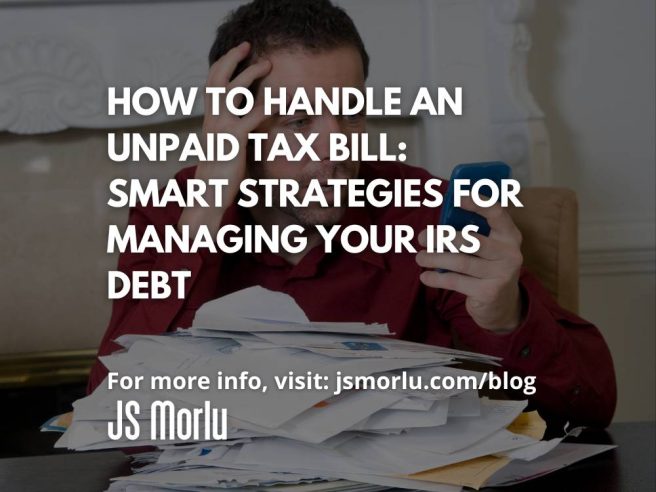Each year, about three out of four American taxpayers receive a tax refund. However, some individuals find themselves in a situation where they owe taxes instead of getting a refund. If you’re among those who owe the IRS and cannot pay the full amount by the mid-April deadline, it’s essential to understand your options to avoid penalties and interest. This guide explores various ways to manage your tax liability effectively.
Filing Extensions for Disaster-Affected Areas
If you live in a federally declared disaster area, the IRS may automatically extend your tax filing and payment deadlines. You don’t need to be directly affected by the disaster; simply residing in the area qualifies you for the extension. To verify your eligibility, check the IRS website for Tax Disaster Relief Situations or contact a tax professional for guidance on state-level relief extensions.
Why You Might Owe Taxes
Several factors contribute to an outstanding tax balance:
- Under-withholding: If too little tax was withheld from your paycheck, you may owe additional taxes.
- Self-Employment Tax: Self-employed individuals who fail to make estimated tax payments throughout the year can face a hefty tax bill.
- Capital Gains: Selling investments or property without adjusting your tax payments can lead to a significant tax liability.
If you find yourself owing taxes, taking prompt action is crucial to avoid penalties. Consider the following options to settle your tax debt.
Best Ways to Pay Your Tax Bill
1. Family or Friend Loan
Borrowing from family or friends can be the most cost-effective option, as it often comes with lower interest rates and more flexible repayment terms.
2. Home Equity Loans and HELOCs
Using the equity in your home can provide access to lower interest rates compared to unsecured loans like credit cards. However, applying for these loans can take time, so start early if you anticipate needing funds before the tax deadline. Keep in mind that interest on home equity loans is not tax-deductible through 2025 unless Congress changes the law.
3. Credit Card Payment
Paying taxes with a credit card is an option, but it comes with high interest rates and additional processing fees. The IRS works with service providers like Pay1040 and ACI Payments, Inc. to accept credit card payments. However, large payments require coordination with the service provider—amounts over $10 million for Pay1040 and over $1 million for ACI Payments.
4. IRS Short-Term Payment Plan
If you owe less than $100,000 (including penalties and interest) and can pay the full amount within 180 days, you can apply for a short-term payment plan online. While there’s no setup fee, you will still incur penalties and interest until the balance is paid off.
5. IRS Installment Agreement
For taxpayers owing $50,000 or less, a streamlined installment agreement allows monthly payments for up to six years. The IRS charges setup fees, but low-income taxpayers paying via direct debit may qualify for a reduced fee. Key conditions include:
- Timely monthly payments
- Filing future tax returns on time
- Sufficient tax withholding or estimated payments to prevent future liabilities
- Future refunds applied to outstanding debt
- A 10-year statute of limitations on collections remains in effect
If you owe more than $50,000, you must provide financial documentation to qualify for an installment plan.
6. Retirement Account Withdrawal (A Last Resort)
Withdrawing funds from a retirement account to pay taxes is generally a poor choice. The withdrawal may be taxed at your highest tax rate, increasing your liability. If you’re under 59½, a 10% early withdrawal penalty also applies.
7. Offer in Compromise
This IRS program allows taxpayers to settle their debt for less than the full amount owed. To qualify, you must meet strict financial hardship criteria, such as:
- Inability to pay the full amount due
- Doubt about the IRS’s ability to collect the full debt
- Legitimate dispute over the tax amount owed
Applicants must submit a detailed financial statement and pay a $186 application fee, unless they qualify for a low-income exemption. If approved, payments can be made in a lump sum or installments.
What Happens If You Ignore Your Tax Debt?
Failing to address unpaid taxes can lead to severe consequences, including:
- Wage Garnishment & Asset Seizure: The IRS can levy your wages, bank accounts, or property.
- Trust Fund Recovery Penalty: Business owners may face additional penalties for unpaid payroll taxes.
- IRS Summons & Legal Action: The IRS may summon you or third parties to investigate your financial situation.
Key Takeaway: Act Now to Avoid Penalties
Ignoring your tax liability is the worst course of action. Whether you choose a short-term payment plan, installment agreement, or loan, taking proactive steps will help you avoid penalties and interest. If you need assistance exploring the best payment option for your situation, consult a tax professional to ensure compliance and minimize financial impact.
For expert tax assistance, reach out to our office today!
JS Morlu LLC is a top-tier accounting firm based in Woodbridge, Virginia, with a team of highly experienced and qualified CPAs and business advisors. We are dedicated to providing comprehensive accounting, tax, and business advisory services to clients throughout the Washington, D.C. Metro Area and the surrounding regions. With over a decade of experience, we have cultivated a deep understanding of our clients’ needs and aspirations. We recognize that our clients seek more than just value-added accounting services; they seek a trusted partner who can guide them towards achieving their business goals and personal financial well-being.
Talk to us || What our clients says about us


